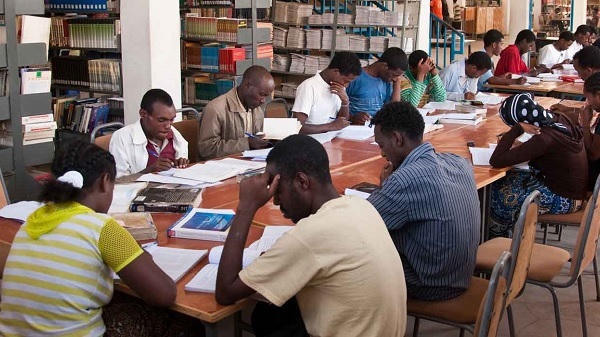
BY MENGESHA AMARE
There is a golden saying reflecting the state of a given generation upon a country reads, “A generation with no history is tantamount to a wingless crow.” It is to mean that every country has a relevant history to pass down to the posterity thereby equipping them with the required weapon for defending their country. This history is fundamentally transferred to citizens through a way of acquiring knowledge such as reading—a means by which historical records and fundamental archives that are properly jotted down—have been comprehended.
Even if someone would like to write about something, they have to read and comprehend concepts well. When I joined a pen with a paper to jot concepts down about the state of reading these days among the generation, I have prettily remembered what my instructor told me when I was a third year foreign languages and literature student reciting ‘reading is the secret of writing.’ This is to mean that not only does reading contribute to the effort geared towards knowing history and other fundamental national elements but it also plays a great role in helping people write well and come up with convincing justifications referring dependable sources.
It is inevitable that things can be well remembered when situations coincide. For instance, the current generation would never have been exposed to the repercussions of fabricated narratives, distorted historical chronicles and prejudiced thinking had they read well. The good thing these days is attention is given to the process of nurturing the generation. Government’s commitment to provide the youth with suitable places to read can be a very good example in this regard. The existence of “Abrehot Library” in this era when reading is perceived as a dwindled culture and the generation has been flooded with social media wave is a fundamental step to push citizens to the ocean of reading.
Yes, the generation who is fond of reading is capable of sorting out the seed from the chaff. They are persuasive and come up with convincing justifications for the arguments they come across. It has helped them decide on things after thinking twice and cross checking what is rhetorically narrated with what is practically carried out.
Besides, reading helps boost confidence to prefer reasoning to be merely submissive about what they are told to do so. Reading thus gives much more freedom for people to utter about a concept they would like to discuss, too.
Reading or reading comprehension has always been and/or will be social constructs. Writing systems change, languages evolve, and technologies advance, cultures and societies shift, and the social value and meaning of literacy follow along. We cannot define or legislate what reading conception is, but we can observe and describe it in the historical moment, use the tools of science to understand and interpret it. Besides, it hopefully helps individuals and groups to better acquire and use this valuable social technology of learning, communication, personal growth, and societal participation.
True, the complexities of one’s language, one’s writing system, and the social context of literacy practices and uses will interact with individual differences, resulting in relative advantages or disadvantages for individuals as they learn to read and become literate.
In principle, acquiring knowledge can be garnered and reinvigorated through a various means. For instance, people can learn from external environment, families, attending formal educational curriculums as well as from reading a number of texts, historical documents, chronicles and other sources of information. The later particularly is of paramount importance in shaping generation mental setup, having required behavioral change and attaining required human development. Hence, it is quite indispensible that promoting the culture of reading helps bring about civic minded, reason-oriented, competent and productive generation on which a given country highly depends for its development, prosperity and growth.
It is crystal clear the youth who are going to take over the country with its future have to be equipped with all the necessary inputs of knowledge thereby contributing what is expected of them to the effort geared towards pushing the country to the next level of success, perch on the ladder of triumph and being a championship for the sweetest zeal of change trajectory.
Since there are indicators portraying the culture of reading in Ethiopia are dwindling, a range of viable mechanisms have to be devised in order to optimistically invite the youth to go through a number of sources of knowledge.
Basically, there is a galaxy of prominent and renewed writers in country using various languages. However, the new generation is not that much interested in reading the brainchildren of these writers perhaps due to a range of factors.
As some say, the boring writing style of books is attributable to the sluggish pace of championing towards reading among the generation. The second might be the era of digital media as it is seriously compromising the intention of citizens to read books, especially of history, written materials, and even academic writings to pass examinations. So long as the youth can easily access information through various social media conduits that grab the attention of people with mesmerizing pictorial accompanies, reading has become a minor and secondary scheme to know about things in general.
The other important point that needs to be taken into account is generation’s low level of initiation to know the history of their country, the culture of the community from where they are brought up, and the priceless social assets that have cemented citizens across the nation.
All these and the not yet mentioned tributes can be reinvigorated and the generation would be well invited to scrupulously look into what their country does possess and how the community in every respective constituent in the country is harmoniously intertwined.
The Ethiopian Herald August 13/2022


